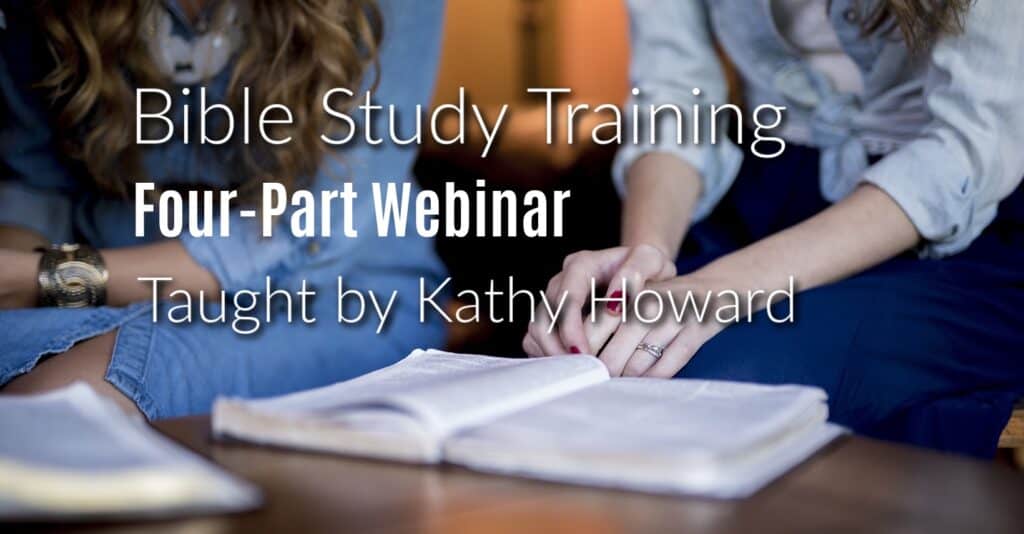
Want to study a Bible book but not sure how to begin? Before reading chapter one, verse one, doing a little investigation on the background of the book will lay the right foundation and expand your understanding.
Start with the Background
The Bible was not written in a vacuum. It was written within a specific set of circumstances. Since the Bible has just one meaning – the one God originally gave it – the original circumstances surrounding the book can bring clarity. The context of the book impacts the way we interpret the meaning.
This is especially true for the epistles (letters) of the Bible. When I began my study of the book of Romans for a new devotional book I started with the background. I learned some important facts that laid a good foundation for my study. Some of these facts might surprise you. (For more, see “8 Things You Might Not Know about Romans.“) If you’d like to study Romans, my new 40-day devotional, “Deep Rooted: Growing through the Book of Romans,” would make a great guide! (See it now on Amazon.)
The circumstances of a Bible Book
What background facts and circumstances should we consider? Although not an exhaustive list, the following items are relevant for most Bible books.
- Author – God divinely inspired every book of the Bible, but He chose to work through human tools. Every book reflects the personality and background of the author. Knowing the author illuminates certain features of the book . (See also “Who Wrote the Bible & Why Does it Matter” & “Human Authors of the Bible.”)
- Audience – Every Bible book is ultimately for God’s people of all time. However, each one was originally penned for a specific, more narrow audience. Some books were written to individuals, some to churches, and some to the nations of Israel or Judah. In the New Testament, some were primarily for Jews and others for Gentiles. Knowing the original audience sheds light on the text and helps us determine what content was specifically for that audience and what has application for us today.
- Setting – Knowing the place and date grounds the book in history and expands our understanding. For instance, knowing Paul wrote the book of joy (Philippians) from prison teaches us about the nature of true joy.
- Purpose – Discovering the primary reason the author wrote helps us grasp the main point of the book and its themes. For instance, the apostle John wrote his Gospel so that readers would experience saving faith in Jesus (John 20:30-31). This helps us understand why he included specific events.
- Historical context – Knowledge of the world’s events and powers at the time of writing is very helpful. For instance, a little information about Assyria, Babylon, and Persia expands our understanding of the fall, exile, and return of God’s people in the Old Testament. (See also “4 Things to Consider for Biblical Context.”)
- Cultural context – Just as today, when God inspired the Scriptures, His people lived in a specific culture with specific values and norms. When a Bible book was written, both the author and the audience had a basic understanding of this culture. It wasn’t necessary to explain this context for the original audience. But we don’t have the same perspective. Without the culture context, it’s easy to misunderstand and thus misapply God’s Word. Things like idol worship, the status of women, religious customs, commerce, and trade all shade and shape the meaning of the biblical text.
Places to Find Background Information
Some of this information can be gleaned from the book itself, but there is a wealth of excellent resources to help us with the rest. Here are a few:
- Study Bible – Most translations publish a study version that includes brief introductions for each book and notes on the text.
- Bible Dictionary – The Holman Bible Dictionary is good one!
- Bible Handbook- Check out Halley’s Bible Handbook
- Bible Commentaries – You can get single commentaries for individual Bible books or sets that cover the whole Bible. For sets, I like the Expositor’s Bible Commentaries and the NIV Application Commentaries.
- The IVP Bible Background Commentary – This two-volume set is one of my favorite and most helpful resources for learning about the historical and cultural background of a text. (See the New Testament volume. See the Old Testament volumes.)
- Online resources – Sites such as BibleGateway.com and BlueletterBible.org provide multiple resources like dictionaries and commentaries
What are your favorite resources for Bible study, particularly for researching the book’s background?

FREE Bible Study Training Webinar Series
Want to take your Bible reading and study to the next level? Want to feel confident that when you ready your Bible you will understand its meaning and be able to apply God’s truths? Then this webinar is for YOU!
In this 4-part live webinar, I will give in-depth instruction on the 4R Inductive Bible Study Method. Each part will focus on one of the 4Rs – READ, RECORD, REFLECT, RESPOND. You’ll learn how to get in, understand, and apply God’s Word.
FREE? Yes, the webinar is FREE! This is the first time I’ve used this particular teaching format. So, you get to benefit while I try something new!
SIGNUP NOW FOR THE WEBINAR
WEBINAR DATES
- Part 1: READ (Tuesday, Feb 13, 7pm CST) – Includes Bible translations, organization of the Bible, and overview of Inductive Bible study
- Part 2: RECORD (Tuesday, Feb 20, 7pm CST) – Includes what we need to know about a book background, how to observe a Bible passage, and metanarrative
- Part 3: REFLECT (Tuesday, Feb 27, 7pm CST) – Includes interpretation principles to consider like literary genre, literary context, historical/cultural context
- Part 4: RESPOND (Tuesday, March 5, 7pm CST) – Includes identifying and applying God’s eternal truths and timeless spiritual principles
This 4-part webinar will be streamed into a private Facebook group. Those who register will receive a link to join group. You will also get reminder emails before each webinar session.
Attending the live webinar will give you the opportunity to ask me questions. However, the webinar sessions will be recorded. So, if you can’t make one or more of the LIVE teaching times you can access them later.


I have commentary but usually don’t get into it. Trying to just get into my Bible regularly lately it seems.
Referring to commentaries is usually my last step. I want to give God every opportunity to speak to me and give me understanding about His Word before I turn to what others say about it. Keep up the effort of getting into the Word!
I usually read the passage first and then go to a commentary to be sure I understood it correctly. I also have a cultural Bible (can’t think of the name of it off hand) that is really helpful.
What type of observation and interpretation techniques do you use before you go to the commentary? I love the IVP Bible Background commentaries for information on history and culture of the passage.
Thank you for the information. I’ve gone on pinterest and downloaded the “ready” pages to study with the Bible book, but I never have enough room. So will take your suggestions and make my own.
So glad you found the information helpful!